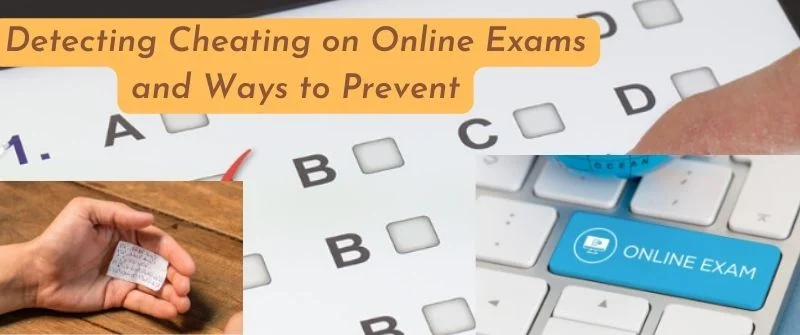Students all over the world will strive to perform well in their exams due to the demands of good results at family level and the job market which prefers smart students.
This pressure from the various quarters can push students to be involved in exam cheating which ultimately produces students who are poor in decision making at both personal and career level.
Cheating dents the integrity and productivity of students but more seriously undermines education standards of a country hence hindering a country’s ability to compete with others worldwide.
In this era of technology, most exams are administered online and like any other exam these online exams are also prone to cheating. The question is why do students cheat in online exams?
What factors facilitate the cheating and how can this cheating be detected? This article will try to answer some of these questions.
Also Read: Assignment 4 String Shortener Algorithm 2: How to Prepare
How to Detect Cheating on Online Exams
Proctoring
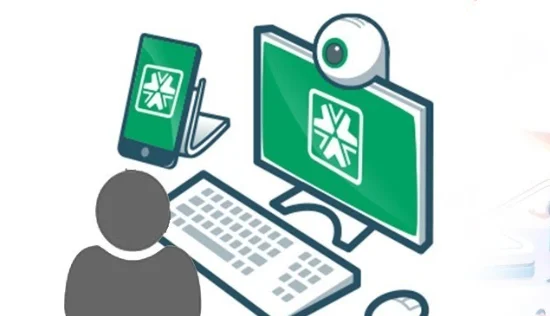
Proctoring is a type of testing that is overseen by a neutral, authorized proctor.
His target is to ensure that the identity of the students taking the test and the integrity of the test environment is beyond compromise.
A proctor basically is an instructor’s proxy whose role is to oversee an exam. The proctors are tasked to check students’ IDS, monitor students and keep track of time in order to ensure that exam instructions are adhered to.
The simplest method is live proctoring which uses a live proctor similar to a classroom setup. It allows students to take their exam while at home over the computer.
The other one is through automatic proctoring which basically monitors the student’s environment for any sound and motion.
Finally, the record and review proctor entails recording an exam so that it can be reviewed after the exam is done.
Although there have been issues with monitoring students, proctoring is legally accepted in most countries. The students are therefore not being watched when taking the exam but they know that should they attempt to cheat, there can be reviews.
Live Exams in School
Live exams in schools are becoming common in learning institutions, especially in this era where exams are done online.
These live exams allow the instructor to monitor students during exam sessions by employing a collection of video, screen share and audio connections which monitor students in the test environment.
In these exams the students are totally observed as they take their exam by focusing on their faces, desks and their engagements on their screens.
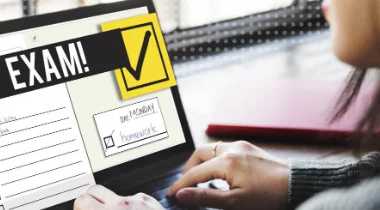
This makes it difficult for the students to even imagine cheating in any form because they are aware that they are under surveillance throughout the exam.
Also Read: Google Meet for Classes and Exams: Student Tips and Hacks
Reasons why Students Cheat in Online Exams
Laziness
It is very clear that a student who is focused, hardworking and well prepared for an exam will perform well and even exceed their own abilities.
However, a lazy student will resort to cheating in an exam because of poor preparation, disorganization and low confidence levels.
In essence, a lazy student will not attend classes, complete assignments and even the coursework and therefore will miss an integral part of learning. By missing all this what happens during exams?
Yes, they will resort to cheating as it is the only available way to compensate for their inadequacies.
Desire to Pass
Very rarely will you meet a student who goes to school without an intrinsic or extrinsic desire to pass their exams.
Naturally a student would want to pass so as to make it in life and avoid the frustrations that come about as a result of failure. This together with other reasons make it a do or die affair when it comes to succeeding in exams.
Students will therefore do anything within their means including cheating in order to meet these desires.
Pressure from Parents
Parental pressure is also another reason as to why students will resort to cheating.
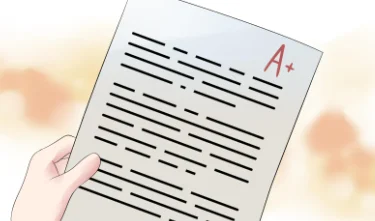
Parents believe that all the investments they have made in terms of college fees and material support must be accompanied by excellent results.
However good these intentions might be, they pile a lot of pressure on students.
Ultimately, this pressure creates a feeling that it is fine to cheat in the exams as long as parents will be happy and satisfied with their performance.
Peer influence
Some students will simply be involved in cheating because others are doing it. If the class head for example engages in cheating, the other students will also find a reason to equally cheat.
The number of students who cheat globally has been on an increase.
Also Read: Can Teachers See your Screen on Google Meet? Tips to Avoid
Things that Facilitate Cheating in Schools
1. A large Number of Students
A large number of students during an exam can easily facilitate cheating.
Exams require invigilators or proctors in order to monitor the students as they do it. The invigilator-student ratio should be sensible in order to invigilate an exam accordingly otherwise students might be encouraged to cheat in the presence of the invigilator.
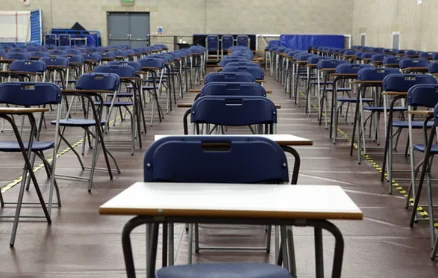
It does not make sense for one invigilator to handle a hundred students scattered in one hall.
However, it makes sense if the ratio is about one invigilator for fifteen students which will allow the invigilators to thoroughly monitor the students.
2. Lack of Monitoring Technology
In this era of technology, students have devised ways of digitally cheating in exams. Because of these developments, teachers and instructors who do not employ the new ways of exam monitoring will be caught unawares by the rather tech-aware students.
Teachers can employ a number of exam monitoring strategies such as the use of a webcam, a computer with a compatible microphone and internet connection.
These can help teachers in a big way to monitor the students by observing them and taking note of suspicious activity in the exam room.
3. Lack of Technical Knowledge by Teachers
It is clear that the world has really shifted towards the use of technology and this is not an exception when it comes to exams in schools.
Teachers who do not possess a proper understanding of how technology can be used to curb cheating will find it difficult to tame the vice.
There is no way a teacher who does not understand how webcams work will be able to monitor students taking an exam using the same device.
It will definitely be a field day of cheating for students being monitored by such a teacher.
4. Phones and Gadgets
One of the most common facilitators of cheating in exams is the mobile phone because it is readily available to students.
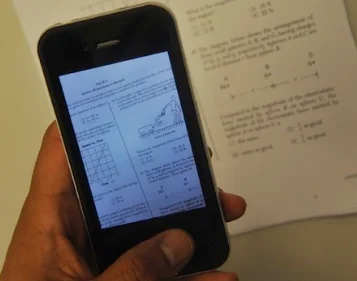
Mobile phones do provide a lot of options that can motivate a student to cheat such as access to web pages, text messages or apps which can easily aid in cheating.
If not keenly inspected and monitored students take advantage, sneak and use these gadgets in examination rooms.
These gadgets can also be used in exams to search for answers and even enhance communication with fellow students during the exam session.
5. Parental Control
Parental control entails keeping track of what children are doing at a given time. It includes monitoring and restricting their activities, limiting the time they spend online and the content they access.
Students who are used to parental control will tend to be disciplined and controlled when subjected to exams which are controlled.
On the other hand, students who are allowed to access content and material without control are expected to exhibit similar behaviors during controlled exams hence they will most likely do what they want in the exam room including accessing restricted websites and applications.
6. Poor Morals
Good morals require a student to know what is acceptable or not when it comes to their conduct during exams.
However, there are students with bad morals and who believe that the only way to succeed is through shortcuts. This either stems from habits, poor preparation or even low self-esteem when it comes to sitting for exams.
With such beliefs these crop of students will always cheat given any slight opportunity without caring whether it is morally wrong to cheat.
Any student out there will desire to succeed in exams and therefore will use any means to achieve this success.
It is important for teachers to employ modern measures of supervision, have enough numbers during invigilation and be keen when monitoring the students during an exam so that they do not find room for cheating.
Students on the other hand need to prepare well, avoid peer influence and understand that not passing exams is not an indicator of failure in life and so they should avoid cheating in exams at all costs.

Joseph is a freelance journalist and a part-time writer with a particular interest in the gig economy. He writes about schooling, college life, and changing trends in education. When not writing, Joseph is hiking or playing chess.
